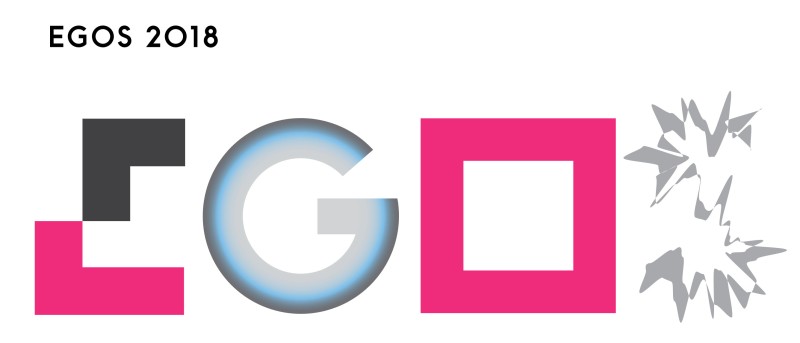PDW 06: Writing Theory Papers for Organization Studies and the Academy of Management Review
Call for Applications
Facilitators:
Depending on the number of submissions, we will put together a team of facilitators,
including associate and senior editors of both journals and editorial board members. Organization Studies Editors
in addition to Daniel Hjorth likely to attend: Trish Reay (Co-editor-in-Chief), Renate Meyer, Jasper Hotho, Mike Zundel, and
Charlene Zietsma. In addition to Jay Barney (Editor-in-Chief), several Academy of Management Review associate editors,
including Sharon Alvarez, Jean Bartunek, and Heather Haveman, are likely attend, along with several members of the AMR Editorial
Review Board.
Purpose
Both Academy of Management Review (AMR) and Organization Studies (OS)
aim to publish well crafted theory papers that galvanize our field. Such papers are crucially important within our academic
“ecosystem” of management and organization journals, where they foster new ways of thinking and (re)direct lines of research.
However, developing and writing such conceptual papers brings particular challenges. Oftentimes, prospective
authors perceive writing theory as more difficult than writing empirical, methods-driven papers. We believe this is at least
partly the case because they have had relatively little training in developing and writing such theory papers (Byron &
Thatcher, 2015). There are also no straightforward formulas or templates for writing theory papers (Ragins, 2012).
In addition, there are also different styles, or genres, of theory papers (Delbridge & Fiss, 2013), based on whether
the main arguments are configured into a set of propositions, a process model, a theoretical essay, or are presented as part
of a comprehensive typology (Cornelissen, 2017). Furthermore, implicit expectations about what journals such as AMR
and OS expect from a theory paper may not be widely known; more open discussion can help potential authors to overcome
these potentially challenging and mystifying aspects of writing a first theory piece (Rindova, 2008).
The
purpose of this Paper Development Workshop (PDW) is therefore to help participants understand (1) the specific expectations
regarding a theoretical contribution for AMR and OS, and building on those expectations, (2) help them gain
a good grasp of the different ways in which theory papers for these two journals can be written.
Format
The
first part of the PDW (9:00–10:15) features a plenary session on both journals and a short roundtable discussion of common
issues and expectations regarding theory. We will then in the second part of the workshop (10:30–13:00) divide into roundtable
groups where participants will get feedback on their own paper from an associate or senior editor of both journals.
This workshop follows up on the successful PDW at the EGOS Colloquium 2017 in Copenhagen. The rationale for the workshop
is that there are still very few workshops on theory papers. Both journals have “Meet the Editors” sessions. AMR
also organizes a general writing workshop at the AoM each year (which is heavily oversubscribed), but that workshop focuses
mostly on general writing issues. AMR has also begun to offer workshops at other international locations. There continues
to be demand, we think, for a more hands-on paper development workshop. For both journals, EGOS offers an important community
of theory-minded scholars who are generally interested in writing for both journals and who would like to get actionable feedback
and help on how they might develop or strengthen their theory papers.
Application
We invite
authors to submit theory papers to be considered for this workshop. Please note that empirical papers (those with quantitative
or qualitative data) will NOT be accepted. In addition, papers that are accepted for presentation at the main Colloquium should
not be submitted to this PDW. The workshop mainly targets early career researchers and doctoral students, but is also open
to more experienced scholars. We particularly encourage scholars who have not yet written theory papers for AMR
and OS to apply. Everyone interested in this workshop is invited to apply; however, priority will be given to scholars
in earlier stages of their careers.
Please submit – via the EGOS website – by April 30, 2018 a single pdf
file document that contains the following information:
On the cover page, a short letter of application containing full details of name, contact (i.e., postal address, phone, and email), affiliation, date of PhD completion (if applicable, stage in the doctoral studies otherwise);
A statement of why the applicant considers it valuable to attend the PDW;
An indication of what journal(s) the paper is likely to be submitted to; and
A full paper that you wish to further develop to a publishable stage and that you will bring to the PDW.
References
- Byron, K., & Thatcher, S.M.B. (2016): “Editors’ Comments: ‘What I Know Now That I Wish I Knew Then’ – Teaching Theory and Theory Building.” Academy of Management Review, 41 (1), 1–8.
- Cornelissen, J.P. (2017): “Editor’s Comments: Developing Propositions, a Process Model, or a Typology? Addressing the Challenges of Writing Theory Without a Boilerplate.” Academy of Management Review, 42 (1), 1–9.
- Delbridge, R., & Fiss, P.C. (2013): ”Editors’ Comments: Styles of Theorizing and the Social Organization of Knowledge.” Academy of Management Review, 38 (3), 325–331.
- Ragins, B.R. (2012): “Editor’s Comments: Reflections on the Craft of Clear Writing.” Academy of Management Review, 37 (4), 493–501.
- Ragins, B.R. (2015): “Editor’s Comments: Developing our Authors.” Academy of Management Review, 40 (1), 1–8.
- Rindova, V.P. (2008): “Editor’s Comments: Publishing Theory When You Are New to the Game.” Academy of Management Review, 33 (2), 300–303.


